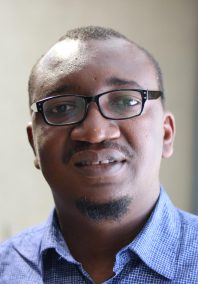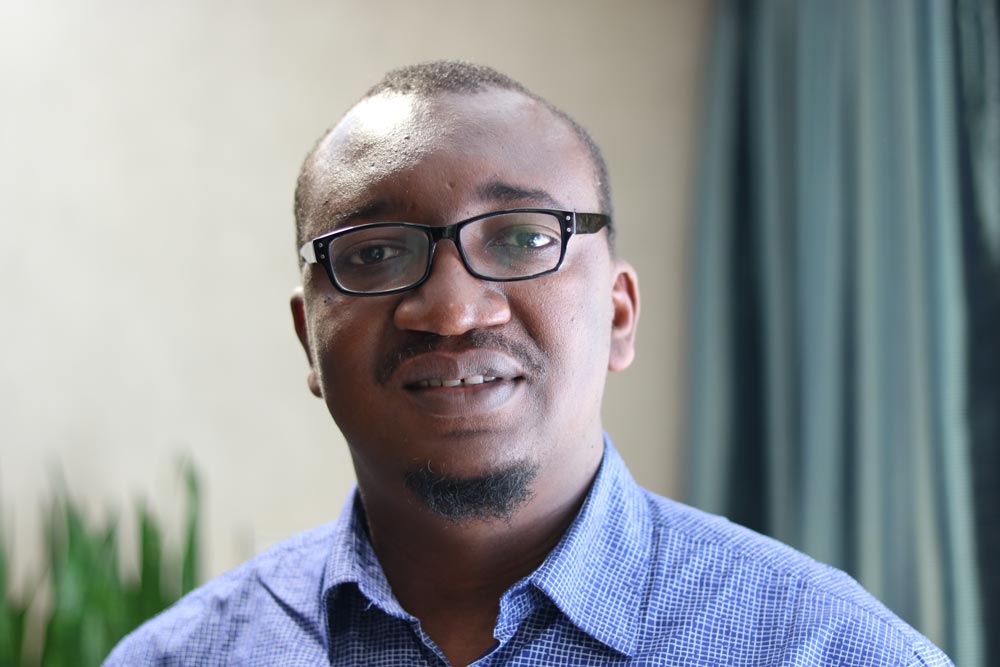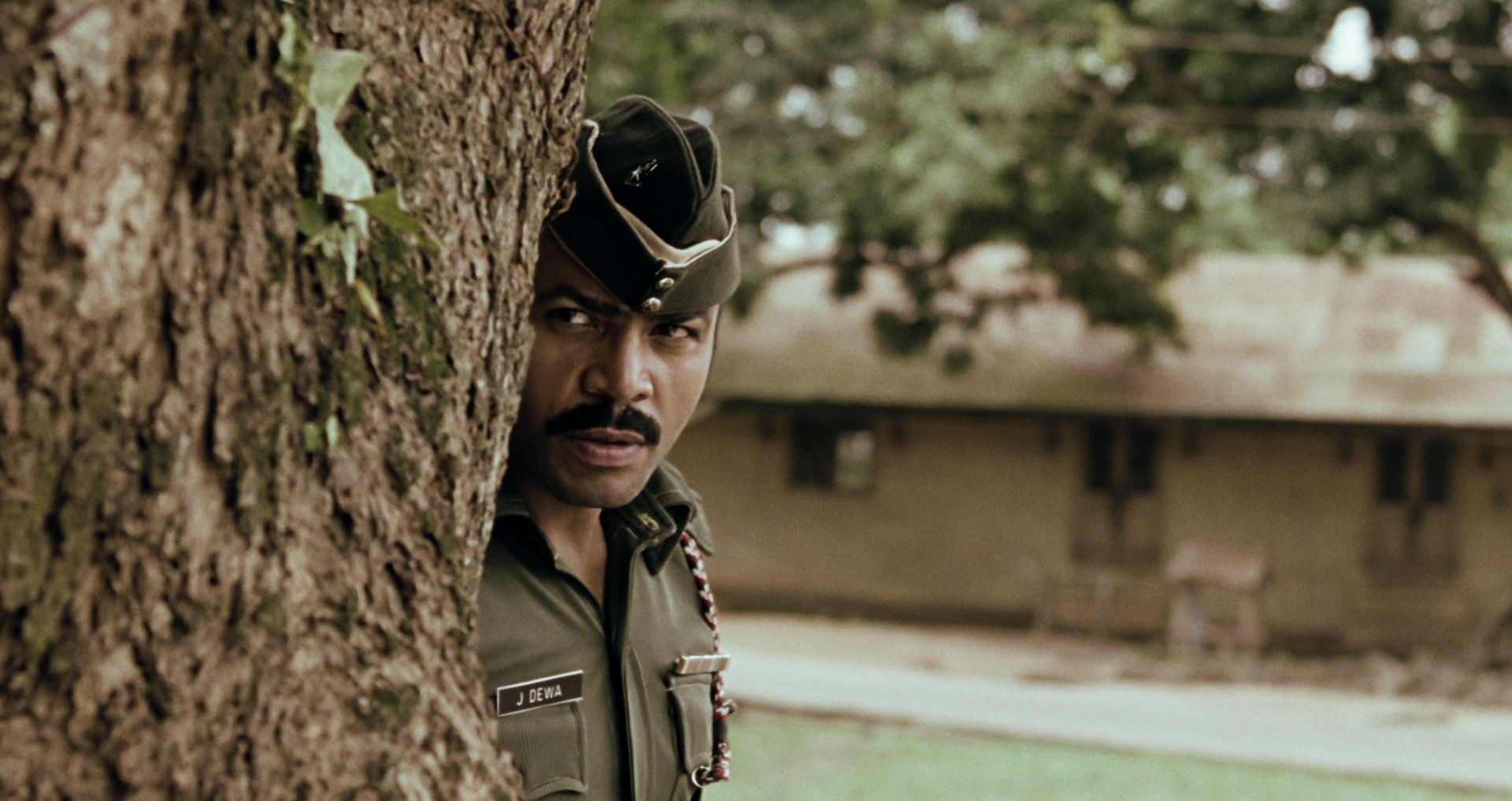
I forbindelsen med premieren på hans film 76, fik jeg lov til at sidde ned med instruktør Izu Ojukwu. Vi fik bl.a. talt om hans barndomsminder fra det rigtige militærkupsforsøg i 1976, og om den voksende filmindustri i Nigeria, der på alle måder er så langt fra Hollywood som det kan lade sig gøre. Hele interviewet kan læses her:
Why did you decide to tell the story of this particular mistaken coup?
I have a personal relationship to this story. I happen to have witnessed the escape of the ringleader, when I was three. I may not remember much, but I have a very vivid memory of this. The compound I lived in belonged to his family, so when he escaped from Lagos, the whole compound was invaded the next day by soldiers. I wasn’t captured then, but he was captured days later by the border of Cameroon. Nothing happened to me, I didn’t have relation to it, I didn’t understand what was going on at the time, but I went on to live for 18 years under a military rule, and every time there was a coup I got a flashback to that time. As I was growing the story became clearer, I didn’t see anything good about the army, I only saw brutality, beating and killing people. That was the impression I grew up with.
Every time a coup failed, all the participants were executed. I was in an accident in 1999 and was rescued and helped by soldiers getting me to the barracks. That changed my opinion and I started seeing the army from a different perspective. In 2004 I had an opportunity to stay at the barrack for three months, and that is when I started collecting information. Then again, it’s a different kind of pain. The pain of your spouse dying for your country you can deal with as a woman, but men have to be able to deal with being executed publicly, the disgrace and you are also kept out of the barracks.
So I said: “There is a responsibility as a filmmaker in telling this story”. Nobody can justify a coup and I also wouldn’t justify execution, but that’s the way it goes, when you kill, you get killed. However, when I started living in the barracks I saw that they are actually humans, they are nicer than we thought. They do everything normally. So I wanted to make people see [the military] from a different point of view.

I also have to ask about Nollywood, because Nigeria is such a prolific film nation. I haven’t experienced it myself, but from what I have read, you have a very different way of making films. Could you talk a little bit about the process of making this film?
We really don’t have a big budget, but this was shot on super16 film, and in my country it is considered a big film. I always wanted to tell the story from a human perspective, and I have to be concerned with the commercial perspective, because we have to stay in business. The way Nigerian film used to be so prolific lies in the past, it is changing now. That is why we are getting recognition from Toronto International Film Festival. We have always made films in a hurry, but we also made films for commercial reasons. Now we are beginning to balance it out, with them hopefully being more commercial and artistic. Everything is evolving and growing.
So how long did it take to film this picture, because it’s a big story?
The first draft of the script was from 2009. My younger brother was the assistant producer, but he passed on during the process, so we had to start over. We were still at the pre-production stage at the time. So we had to wait a year, because we need the recognition of the army. You couldn’t tell the story without the army, which was hard, because this is a subject the army doesn’t want to talk about. Once the army had changed, and that took another two years, we got the approval we needed and could borrow some of their equipment. Then we realized, that they didn’t have a lot of the things we needed. So it is difficult to do a period film in the 21th century, we have no respect for history, so grabbing the things was a bug challenge.
In this film we wasn’t even really in control of the streets, but at least when we filmed in the barracks the soldiers could help control things. The challenges we face [in Nigeria] is not on the same level as the rest of the world. We film then through the skin of our eyes, and hopefully we can get recognition and improve in the future.
What is your directorial style?
First of all, this is a dark film, but I didn’t want it to look dark. My approach was to do off camera violence. I like to use the interplay of light and shadows to tell my stories. I wanted the audience to be drowned in violence, but not see it. To feel it, but not see it.
I could have done this the entire film, but the story wouldn’t be complete without the assassination. That is also the darkest moment in our political history in the seventies, so I discolored the execution and assassination. I didn’t want to color them, because I wasn’t proud of those moments.

This is a little thing, but I was wondering how you did the transition effect in the interrogation scene?
It was stitched. We had to stitch all the shots together. It was inspired by Orson Welles and his style of transition in the fifties.
What are you most proud of in this film, now that it’s finally been made? I know it’s a very personal film, but is there any particular part you are most proud of?
The thing I immediately thought of was the fact, that we made this picture. There was a point, where everybody could have left. We couldn’t move forward, because we didn’t have the funds. The film was dead for a while, but we were able to revive it.
That is what I am most proud of. That we were able to tell this story. Even in the face of adversity, you are able to stick to your conviction.
As a final question, I just want to ask, what you hope people will take away from the film.
In the sense of the story, I hope people will see a story about taking responsibility. Even if you face, you have still made a choice. For the international audiences, I just hope will be made aware of what a country like Nigeria have been through. Just to get a glimpse of what we have gone through. Somehow, you’ll be able to appreciate the people more, if you know what they have struggled with over time. We weren’t always a democracy, so we are playing catchup now.